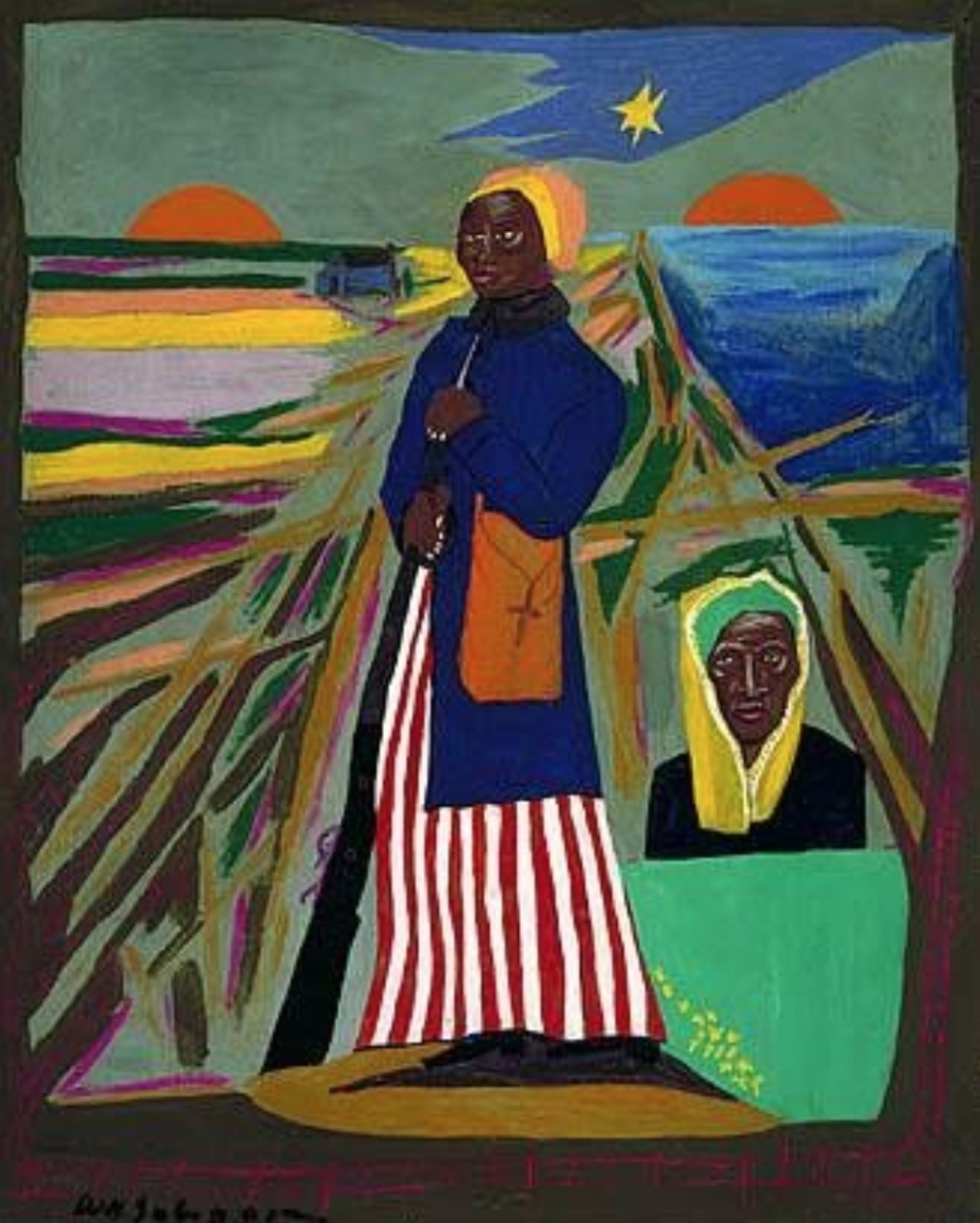
Harriet Tubman
From William H. Johnson’s Fighters for Freedom Series
Dear AllY,
As February and Black History month comes to a close, and with Women’s History month quickly approaching, I want to acknowledge Harriet Tubman, a great model of allyship to the marginalized communities of her day. Harriet Tubman freed herself and chose to carry out numerous missions to secure the freedom of others, even assisting the military of the same government that once enslaved her and her people. And once all people were freed, Harriet Tubman would go on to fight for the causes of women as well. Driven by the most American of values “Life, Liberty, and Justice for all,” Harriet Tubman exemplifies allyship because of her willingness to sacrifice her personal comfort and privilege to assist others.
Araminta Ross was born in 1822 in the slave state of Maryland. As a little girl, “Minty” was inclined to be outdoors, even though she was somewhat sickly. By chance, or by cruel fate, Minty’s life was changed when she was struck in the head with a metal weight, meant for a slave that was running from their master. As a result, she would suffer from seizures and have “visions” for the rest of her life. When Minty married a free man, John Tubman, she became Harriet Tubman.
After suffering a bout of sickness, Harriet’s master tried to sell her, unsuccessfully. This puts the thought of escaping to freedom in her mind. After her first attempt, Harriet’s brothers convinced her to return. Within weeks of returning, Harriet Tubman decided to free herself to Philadelphia. Once she landed safely, Harriet intended to go get her husband, John, and bring him north. When she made it safely back south, she found that her husband had married another woman. Not one to waste an opportunity, Harriet gathered her first group of passengers to freedom. Tubman utilized her knowledge of nature and the network of allies known as the Underground Railroad, returning to the dangerous South over a dozen times to lead others to freedom.
Even before the Emancipation Proclamation, Harriet Tubman took it upon herself to come to the assistance of the Union army. She worked as a nurse and a recruiter for Black soldiers to help in the war efforts. In 1863, Harriet helped to orchestrate and lead a raid on a Confederate camp. She saw to it that nearly 800 formerly enslaved people were led out of the camp, while the Union soldiers were able to procure valuable goods as well! This raid was widely publicized by the Union and Confederate alike. The mission was one of the most successful raids of the war and the first military mission led by a woman in U.S. history!
When I think of allyship, I think of Harriet Tubman. She could have chosen to stay in the North. She could have abandoned any one of her missions, but, instead, she was driven towards her own way of practicing social justice. Aware that she was not going to change the system of oppression itself, she sought to provide assistance to those within her reach. What inspires me most about Harriet Tubman is that she was willing to use her own knowledge and experience to practice in the best way she knew. Isn’t that the best any of us can do for each other?
Consider watching this documentary Harriet Tubman: They Called Her Moses
Heather Guy, Racial Justice Coordinator

